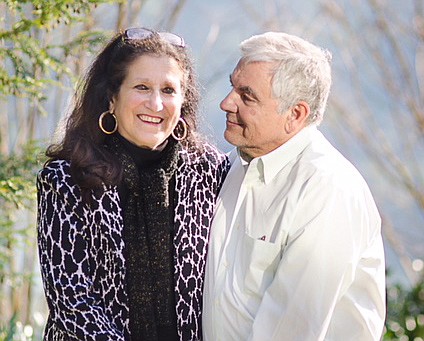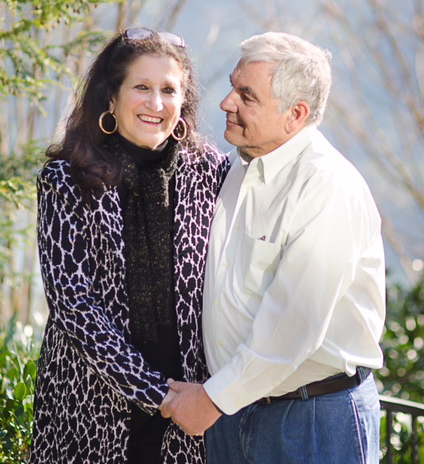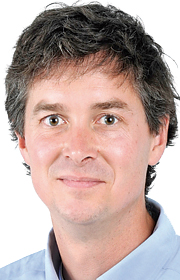Long ago, in the 1950s, at a Catholic school in Dakar, Senegal, a little girl walked in and took her seat.
Her name was Osmette.
Born in Senegal and raised Muslim, she came from a large family - five brothers, two sisters - of Lebanese descent. Her parents sent her to the Catholic school because it was a good education. It was also a stern one. Osmette, who was left-handed, quickly learned to use her right. The nuns, with their rulers, would whack her tiny knuckles if she didn't.
One day, the school's priest began to rudely criticize Islam and Muslims.
Osmette immediately raised her hand, interrupting him, in protest.
"I do not appreciate you saying mean things about Islam," she told the priest.
Her classmates beamed with pride at her bravery. After school, she raced home, imagining her parents proud, too.
They were not.
"Why are you angry?" Osmette asked. "We're Muslim. And the priest was being mean to Muslims."
"Always respect your elders," they told her. "Always."
This story introduces the life of Osmette Kadrie, 69, who has lived in Chattanooga for the last four decades.
Hers is a life of lionhearted bravery.
Combined with humble respect.
A life of fearlessness outspokenness.
Matched with quiet surrender.
In 1969, she fell in love with a Canadian medical student vacationing in Lebanon; his name was Hytham Kadrie. Married the following year, they moved 6,000 miles away to London, Ontario, where Hytham was finishing neurology school.
She'd never seen snow. Nor a culture - Canadian - so unlike Senegal.
Once more, she would find balance: between respect and assimilation while staying true to her own identity.
In 1977, the Kadries moved to Chattanooga; Hytham became one of our city's first neurologists, recruited here by Dr. John Berry.
They were one of the first Muslim families in the area. Hytham's practice grew; Osmette began playing tennis, drove carpool, hosted parties. Often, she was the most beautiful woman in the room. And, its most gracious.
"You possess all the qualities that I admire," one friend told her recently. "You are the definition of beauty both inside and out."
Yet, she also endured ignorance and ridicule.
Once, a grocer asked where she was from.
"I am Lebanese," she said.
"Where's Lebanese?" the grocer responded.
People told her she was going to hell. She was accused of being Hezbollah. Once, her children got off the school bus in tears. They'd been bullied. (The lionhearted Osmette drove to the house of the bully, telling him, "Don't you ever taunt my children again.")
Over the years, her children grew and flourished. Ismahen became a teacher and counselor at The Howard School, Karim, now in real estate. Tareck, a neurologist like his father.
"My mom is fearlessly outspoken, truly the matriarch," said Ismahen. "She is the glue that holds our family together."
"The center of our family and is our rock," said Karim. "We love her more than words can describe."
"My mother has shown us how to live a life full of compassion, love and strength," said Tareck.
In 1989, Osmette and Hytham's daughter, Michelle, was killed in a car crash outside of Baylor School. A tennis star with a contagiously joyful personality, she was 16. (The Kadries endowed a scholarship and two school awards in her honor.)
Then, in 2003, Osmette was diagnosed with uterine cancer. A complete hysterectomy, radiation and remission followed.
After recovering, Osmette began volunteering at CHI Memorial Hospital. For 13 years, she guided sick patients to their first radiation treatment or the 100th.
"She attracted people to her by her natural concern and yes, love for them," said friend Gerre Schwert, an oncology social worker. "She thinks only of giving and is the most hospitable and loving person I have ever known."
She supported refugees living here in poverty. Cooked meals for the sick. Devoted herself to her three grandsons.
And befriended me.
Over the years, we would sit and talk; I would eat baklava and fumble my Arabic, she would tell stories and laugh. I was drawn to the depth of her wise beauty. Her mischievous warmth. Her sturdiness, as if you could lean up against her.
Her advice was always the same.
"Pray," she would say. "Just pray, David."
Two years ago, just before leaving on a family cruise, a persistent cough sent her to the doctor.
View other columns by David Cook
An MRI found a tumor on her right lung.
The cancer returned.
Doctors removed her lung. For a while, things were better.
Yet earlier this year, the cancer, for a third time, returned.
It is terminal.
"I thank God every morning when I wake up for giving me one more day with my family," she said.
Decades ago, that Catholic school priest was terribly wrong.
For more than 40 years, Osmette Kadrie has taught so many of us here how to live with both fearlessness and respect. She is one of the finest human beings I know.
David Cook writes a Sunday column and can be reached at dcook@timesfreepress.com or 423-757-6329. Follow him on Facebook at DavidCookTFP.


